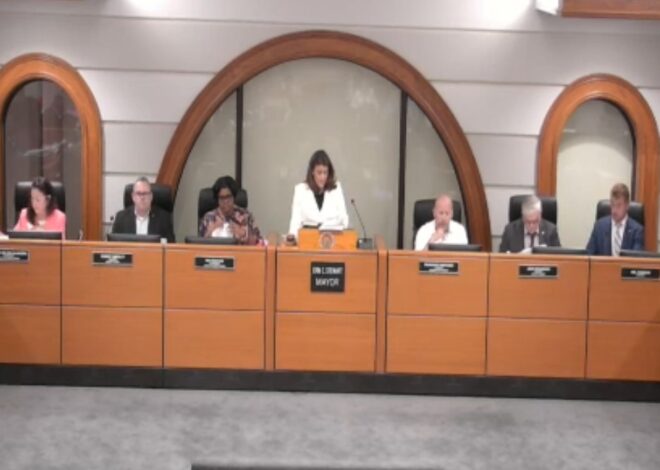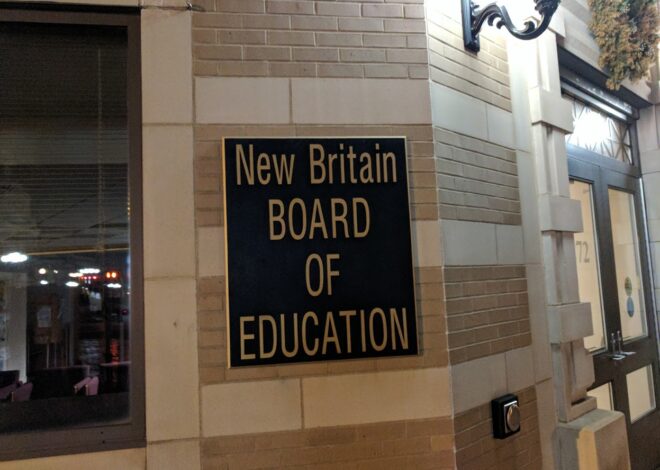Summer Youth Employment and Learning Program Begins!
By Geoff Elterich
Staff Writer

The Summer Youth Employment and Learning Program (SYELP) begins this week in New Britain. SYELP is a work and learn experience designed for 8th-12th graders that runs for 5-6 weeks in July and August.
In New Britain, four organizations help run SYELP: Opportunities Industrialization Center of New Britain (OIC); Greater New Britain Teen Pregnancy Prevention, Inc. (also known as Pathways/Senderos); the YWCA; and the Human Resources Agency of New Britain (HRA).
The purpose of SYELP, according to Paulette Fox, Executive Director of OIC, is to prepare the future workforce. “The earlier you can get youth to understand the eight career competencies, the more success they will have in school, in college, and in the real world of work,” said Fox.
“If our City is ever going to move the needle on the evasive poverty that exists in all segments of our population, then we need to fund programs like SYELP that have a direct impact on the progression of the individual young person in order to ensure that they are able to break the cycle of poverty in which they exist,” said Katie O’Donnell, the program coordinator at HRA.
OIC is the original summer youth work provider for the City of New Britain. It started in 1984, and by 1985, they were serving between 600 and 700 students overall. This is Fox’s 32nd year at OIC. Currently, they serve 130 SYELP youth, while HRA serves 115, and Pathways/Senderos and the YWCA each serve 20.
In New Britain, SYELP is structured in a three-tier system. Boys and girls ages 14-15 are in Tier I, where they learn about the world of work through writing prompts, lessons, and activities. The program is designed to help students effectively search for a job and have a comprehensive understanding of the application and interview process. It also provides participants with stipends for their efforts. Pathways/Senderos and the YWCA run Tier I programs, which are funded by American Savings Foundation (ASF).
This is the 11th year that Pathways has been involved with SYELP. Nick Jakubowski, Co-Executive Director of Pathways/Senderos, believes that the program is vital to youth in the community.
“We cover all facets of employment,” Jakubowski states. “Students who successfully complete the Tier 1 program are better equipped to enter the job force. They learn basic competencies as well as skills and strategies that they can carry with them for the rest of their working lives.”
OIC also runs a special Tier I program that serves pregnant teens and teen mothers. Through the Support for Pregnant and Parenting Teens program, with the funding of ASF and a partnership with the Consolidated District of New Britain, these young women can receive a half credit in high school for physical education and career competency.
“These young women receive the same career and work preparedness training as the other tier I group, with the added benefit of learning parenting and life skills,” said Fox.
Tier II is funded by Capital Workforce Partners (CWP) and run by OIC and HRA. It offers career preparedness training for 15-17 year old New Britain students. Tier’s I and II are in a classroom environment but structured like a work day. Students have to be prepared, on time, and ready to work.
From 9 a.m. to 2 p.m. there is a structured employment setting in which students prepare for the world of work. They learn about applications and resumes, the interviewing process, public speaking, and more. Students in Tier II take field trips to workplaces like Traveler’s and Aetna in Hartford for a firsthand experience.
The students work in career clusters, there are IT and Manufacturing groups, along with other groups focusing on Allied Health and other fields. They also have guest speakers to talk about possible careers.
“The idea is to have exposure to viable careers. In addition, we encourage youth to take the right classes in order to progress towards their goals, to ensure that they graduate and continue their education to help attain a successful career,” said Fox.
Tier III, also funded by CWP, offers work experience for 17-19 year old students. Students are placed in businesses, such as Marshall’s, Subway, Stop & Shop, CVS, Konover Properties, Aramark, and more. OIC and HRA run the Tier III program, helping participants with their job placements, but the hours and tasks for Tier III workers are set by the workplace supervisors.
O’Donnell is in her 10th year working with HRA and SYELP. She explains that many of the young men and women in the program are hired by the businesses once SYELP is over. “That’s the best part of Tier III,” she said. “They end up with a real job.”

The tier system works well in New Britain because each step is vital. Students who have participated in the earlier tiers stand out when they enter the last tier. O’Donnell says, “When Pathways kids (who have gone through Tier I) come to us in Tier II and III, they are well prepared.”
There are countless benefits to SYELP according to O’Donnell. “It’s very important to give kids the work experience they need to attain a job, even if it’s just a job that gets them through college,” said O’Donnell, “They are also taught the skills they will need to succeed in college and beyond. Plus, it is important to give kids and young adults something productive to do while school is out to keep them out of trouble.”
The organizations that run SYELP are grateful for the financial support of ASF and CWP, but admit that more funding is needed. “We could use funding from the city,” said Fox. “Hartford is facing a lot of budget problems, but they kept funding for summer youth employment. If we were able to secure another $100,000, we could serve another 400 children.”
Fox believes the program is valuable enough to spend time and money on. “As we prepare the future workforce and look at the kind of skills the youth need to be successful, it’s a no-brainer to support summer youth employment programs,” said Fox. “A full year program would be even better. It would help keep the momentum going. Research shows that when kids are employed, they do better in school and overall.”
O’Donnell and Jakubowski also believe more should be invested into SYELP. “New Britain is a community of high need in so many areas, especially in regards to youth and youth development,” said Jakubowski. “If we are to make our City stronger, and our youth better, then we have to have programs for them, that not only put some money in their pockets but more importantly, teach them applicable skills that they can carry with them as they progress into self-sufficient adults.”



